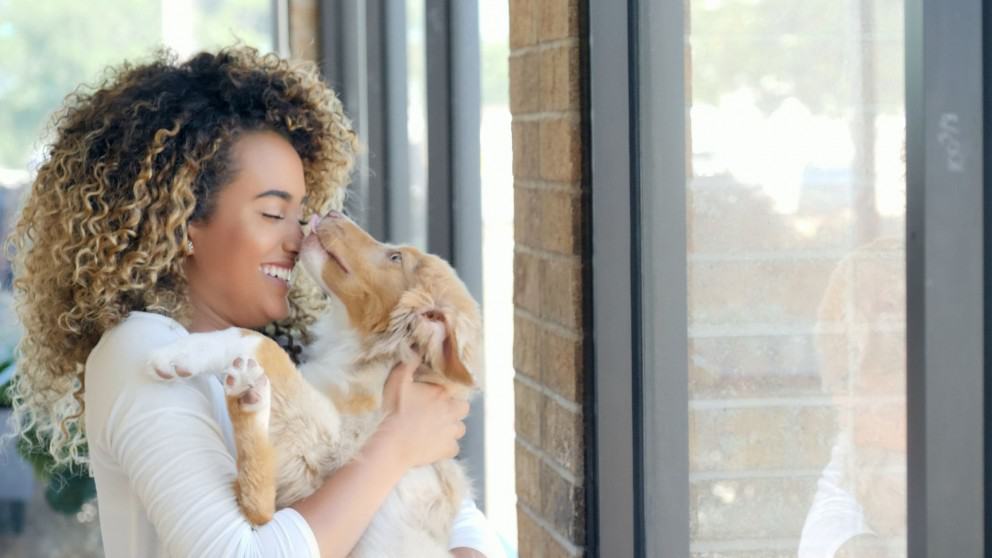Is it Better to Adopt or Buy a Dog?

Understanding why it’s so important to adopt rather than purchase a new furry best friend means avoiding one of the most inhumane situations facing puppy mill dogs today throughout the world. These dogs are kept in cages and treated like livestock their entire lives.
Adding a new furry best friend to your household is an important decision, but you’ll also need to consider the pros and cons of adopting or purchasing a new dog. In this blog, we’ll discuss whether it’s better to adopt or purchase a dog?
Buying from Puppy Mills
Puppy mill dogs end up in pet stores, while female dogs are forced to produce litter after litter until their health is destroyed. That said, both females and males are confined in cages often filthy with pups that are poorly socialized and that end up being shipped around the country.
These pups are often unhealthy, not vaccinated, and suffer from genetic diseases because of indiscriminate breeding programs. Having spent most of their lives in cages, these pups are more difficult to house -train because they’re used to doing so in their cages.
Today, thanks to our constant battle against puppy mills and pet stores, we’ve become more aware of the sad and deplorable living conditions at puppy mills. By purchasing from a responsible breeder or adopting a rescue, you’ll not be supporting puppy mills.
That said, look for dog breeders in your area so that you can visit and get to know the kennel, as well as the pup’s sire and dam. You’ll also be able to choose a pup with the personality and energy that would be a good addition to your family.
Pet Adoptions
From community outreach initiatives to helping you with behavior modification, many animal rescues will help you with training or behavioral issues with your new furry best friend.
While most dogs at rescues are healthy and have good temperaments, it’s still important to understand that their behavior will change just by being at the shelter.
Pets will be nervous, shy, and even aggressive because they’re scared. Past experiences from previous homes may also affect them, most especially if abused and neglected. That being said, it’s always a good idea to visit your local animal shelter a few times during the adoption process.
Shelters help with the rehab process that these dogs will require. These will all vary from case to case, but one thing to keep in mind is that rescue organizations like Best Friends have plans and policies to ensure that every dog receives the care they need.
When a dog is first brought over to the shelter, an intake examination determines the dog’s physical and mental state. This is done by experts like veterinarians, dog trainers, and dog professionals.
When it’s a foster-based rescue, you’ll have the foster parent working together with both vet and trainer to see if additional experts are needed.
Some dogs that have been abused will need months, if not years, to rehab, with the most challenging problem being fear of people. This can come about due to a lack of socialization. With positive dog training methods, these rescues will help dogs that tend to do the following:
- Lunge
- Bark and lunge
- Shut down
- Runaway
- Bite
- Cower
- Show signs of separation anxiety
Adopt or Buy a Pet
We’re all passionate about dogs, and in most cases, it’s best to adopt your new furry best friend even if your new fur baby is beginning his rehabilitation.
You can even wait for foster parents to help initially with environmental management, fear factors, positive dog training, and getting the dog ready for his new home.
Most dogs are adoptable but need to be placed in the right home with the right family. Potential adopters need to visit the dog at the shelter a few times, take him out for walks, and get a handle on everything about the dog-what he likes, how energetic he is, what he’s scared of, how to handle certain situations, and how to work with him during positive dog training?
Your shelter needs to give you detailed information so that you’re prepared, and the transition from shelter to home is a smooth one. Most shelters will have small dog breeds and large dog breeds with plenty of purebred and mixed breeds.
Keep in mind that when you adopt, the process is ongoing and that in some cases, it may take plenty of work that could last for years.
Hypoallergenic Dog Breeders
If you’re opting for a hypoallergenic dog breed, The American Kennel Club (AKC) explains that as many as 10% of the U.S population is allergic to dogs and that “While no dog is 100% hypoallergenic, it’s possible to find less-allergenic dog breeds that are better suited for allergy sufferers. These dogs have a predictable, non-shedding coat that produces less dander. Dander, which clings to pet hair, is what causes most pet allergies in people.
Even though hypoallergenic dogs don’t truly exist, many breeds make it possible to enjoy the companionship of a dog, even if you suffer from allergies.” The AKC adds the following breeds as hypoallergenic.
Hypoallergenic dog breeds include the following:
- Afghan Hound
- American Hairless Terrier
- Bedlington Terrier
- Bichon Frise
- Chinese Crested
- Coton du Tulear
- Giant Schnauzer
- Irish Water Spaniel
- Kerry Blue Terrier
- Lagotto Romagnolo
- Peruvian Inca Orchid (hairless)
Dog Breeders Near Me
If you’re opting to purchase from a reputable dog breeder, you’ll need to find a dog breeder in your location. If not, you can find a dog breeder out of state and organize transport or go and visit first, and then pick your puppy up when he’s ready to leave his family.
Keep in mind that you can also adopt a purebred dog from an animal rescue. Senior dogs make for wonderful rescues, as do mixed breeds.
Just make sure that you’ve asked yourself the most important questions before bringing a new dog home, like, can you afford to board your dog at a top U.S dog boarding facility if you go away on holiday?
These questions may include the following:
- What breeds are good with children?
- Does any family member have allergies?
- Do you have enough time and energy for a new dog?
- Have you considered the finances for regular veterinary and general pet care?
- Are you able to follow through on positive dog training?
- Do you rent or purchase your home?
- Will you always follow through on being the best dog parent you can be?
- Are kindness and patience key to all your interactions with pets and people?
- Will you have the time to socialize with your dog, enjoy outdoor adventures, hiking trips, dog sports, dog beaches, and dog parks?
- How often do you travel for business?
- How many hours a day will your dog be left alone?
- Do you have secure fencing?
- Can you afford pet insurance for veterinary emergencies and regular veterinary care?
Pet Finder
You’ll need to consider both your family and your behavior before selecting a new furry best friend. You can use Pet Finder to find pets that are available nearby you for adoption.
With Pet Finders, there’s also a checklist for new adopters to help make adoption easier. Dr. Nicholas Dodman, a Veterinary Behavior Specialist from Cummings School of Veterinary Medicine at Tufts University, says via Pet Finder, “Choosing a canine companion based on individual behavior and lifestyle compatibility is crucial to the success of the relationships between people and their dogs,” via Pet Finder.
Millions of pets are euthanized each year at shelters in the U.S. This ranges from 3-4 million each year. If you opt to adopt a new furry best friend from a shelter, you’ll save a life and help curb the dog population. There are so many perks to adopting a new furry best friend. Here are a few:
- Most dogs are already trained.
- Pets at shelters are neutered or spayed before being adopted.
- Pets are vaccinated and de-wormed before being adopted and going to their new homes.
- There’s only a small adoption fee versus when you purchase a purebred for a few thousand dollars.
- The small adoption fees go towards helping the shelter with operating and veterinary costs.
- You can adopt an adult or a puppy from a shelter.
Final Thoughts
As with anything, try to glean as much information about your new dog so that you can help him lead the best life possible. By understanding your dog’s past, you’ll be able to work through behavioral issues. Sometimes these may be difficult, and in these times, it’s best to reach out to a positive trainer or a veterinary behaviorist.
If your dog seems skittish, he may just be reacting negatively to the shelter environment. With that in mind, it’s best to visit the shelter a few times to play ball or take a walk with your dog to make sure that the match is a good match to avoid problems in the future.
You can even ask to introduce your existing pets to the prospective dog before making a final decision. If you’re not experienced as a dog parent, it’s best to gain as much knowledge beforehand so that you can give your dog a safe and happy home!
Trying to find the right vet for your companion? You can read more about choosing a vet that gets your pet here.



